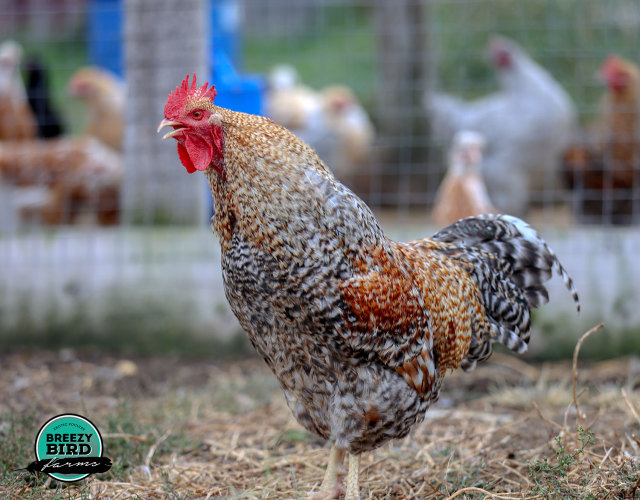The Rooster’s Crow: Unveiling the Mystery Behind It
Welcome to the BBF Blog! Today I am writing about the melodious sound of a rooster’s crow which is often associated with the break of dawn. But have you ever wondered why roosters indulge in this distinctive behavior? Contrary to popular belief, there’s more to a rooster’s crow than simply signaling the start of a new day. In this article, we’ll explore the real reasons behind a rooster’s crow and unravel the mystery behind this fascinating behavior.
Establishing Dominance:
One primary reason behind a rooster’s crow is to establish dominance within the flock. Roosters are natural leaders and use their distinctive call to assert their authority. By crowing, they communicate their presence and dominance to other roosters and establish their territory.

Protecting the Flock:
Roosters are natural protectors of their flock. Their crowing serves as a warning to potential predators, signaling to the rest of the chickens that danger may be lurking nearby. This inherent protective behavior ensures the safety of the flock, allowing hens and chicks to take cover and avoid potential threats.
Territory Marking:
Roosters are territorial animals, and their crowing serves as a means to mark their territory. By announcing their presence audibly, they communicate to other roosters that a specific area is already claimed. This territorial behavior helps maintain order and prevents unnecessary conflicts within the flock.

Expression of Vitality:
A rooster’s crow can also be seen as an expression of vitality and well-being. It indicates that the rooster is healthy, strong, and ready to face the day ahead. Crowing is an instinctual behavior that showcases the rooster’s vitality to potential mates, enhancing their chances of attracting hens for mating purposes.
Communication with Hens:
Roosters use their crowing as a form of communication with hens. It’s their way of getting the attention of the hens, signaling their presence and availability for mating. The crowing can also be a means to gather the hens together or alert them about food sources or potential threats.
Internal Clock and Circadian Rhythm:
A rooster’s crowing is heavily influenced by its internal clock and circadian rhythm. Just like humans, roosters have an innate sense of time and can accurately predict when the sun will rise. Their crowing serves as a natural timekeeping mechanism, helping them synchronize their activities with the rising sun.

The rooster’s crow holds a multitude of meanings beyond simply waking us up at dawn. From establishing dominance and protecting the flock to marking territory and expressing vitality, a rooster’s crow serves various essential purposes. Understanding these behaviors allows us to appreciate the complexities of nature and the fascinating world of our feathered friends.
So, the next time you hear the distinctive sound of a rooster’s crow, take a moment to marvel at the intricate communication and natural instincts that lie behind this age-old phenomenon. Let’s cherish the beauty of these remarkable creatures and the wonders they bring to our lives.
Candace
Breezy Bird Farms
